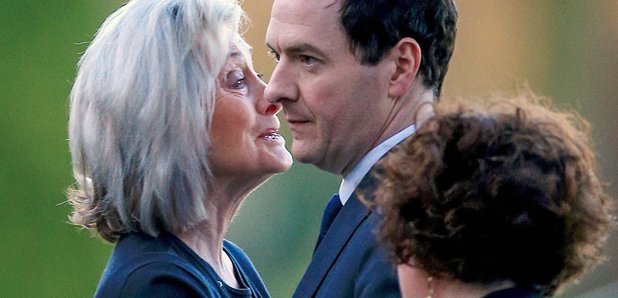
Dean Dunham 9pm - 10pm
20 April 2017, 11:04 | Updated: 20 April 2017, 11:16

Some commentators, and some in his own party, cheered when George Osborne announced he was quitting Westminster. But David Mellor says politics is poorer without him.
The 2017 General Election has claimed its first casualty; George Osborne has fallen on his sword, as least “for now”.
Is “for now” a threat or a promise? Or, as I suspect, just arrogant bravado. For him, leaving the Commons now means it’s over, except for a seat in the Lords, assuming that flawed institution, packed (with Osborne’s help) by Dave with second raters, survives.
A 2020 Election would have allowed Osborne to get his ducks in a row. He would know by then whether his Evening Standard excursion was a success or a failure.
He wanted an each way bet on politics, but the premature start of the race forced him into a decision not to come under starter’s orders. He may yet come to regret it.
Osborne is a serious talent, and at 45, had many potentially good years in politics ahead of him. And whatever sniping you read about him elsewhere, British politics has too few first class talents to gloat over the demise of this one.
Of course Osborne made mistakes; the Omnishambles budget, and, above all, the absurd, near hysteria at the end of the Referendum campaign when he totally lost it.
It’s that collapse that he is apparently content should mark the end of his political career. I’m astonished that even a shed load of money makes him to want to leave it there.
But you can read about his failures elsewhere. What about his successes?
As a principled Chancellor, he tried to set out the case for restraint in public expenditure, for low taxation, and for bearing down on the deficit. He had a grasp of principle, and a willingness to espouse it, way beyond that possessed by his successor Philip Hammond.
Osborne was also against the referendum, seeing it as an unnecessary risk. Maybe he should have threatened to resign if Cameron went ahead. Instead he stayed on board and went down with the ship when it hit the inevitable iceberg of public contempt, not just for Brussels, but most things Westminster as well.
But I was being positive about him, so back to it. His Northern Powerhouse idea was the first time a leading Tory had successfully engaged with the problems of the north in a couple of generations.
He also saw the importance of China and making Britain China’s principal friend in the west. Mrs May would be rash to dump that, though she seems inclined to do so.
In short, Osborne was a genuinely creative force in politics and committed to politics, and political ideas, in a way that Cameron never was.
Sadly for Osborne though, he did share one glaring weakness with Cameron. He simply didn’t understand anyone outside of the privileged world in which he and Cameron live. His creativity, if combined with a real understanding of his fellow citizens, rich and poor, could have made him what he wanted to be, a successful Prime Minister.
But it was all too easy for him. He moved effortlessly from university, into the engine room of Tory party politics, into Parliament before he was 30, and Chancellor before he was 40.
And now, for all intents and purposes, politics is all over, though I suspect he will find plenty of other ways to engage public attention.
Mrs May will be rubbing her hands with glee about this. She shouldn’t. Her Tories, already a pretty undistinguished bunch, look even more second rate today with his departure.